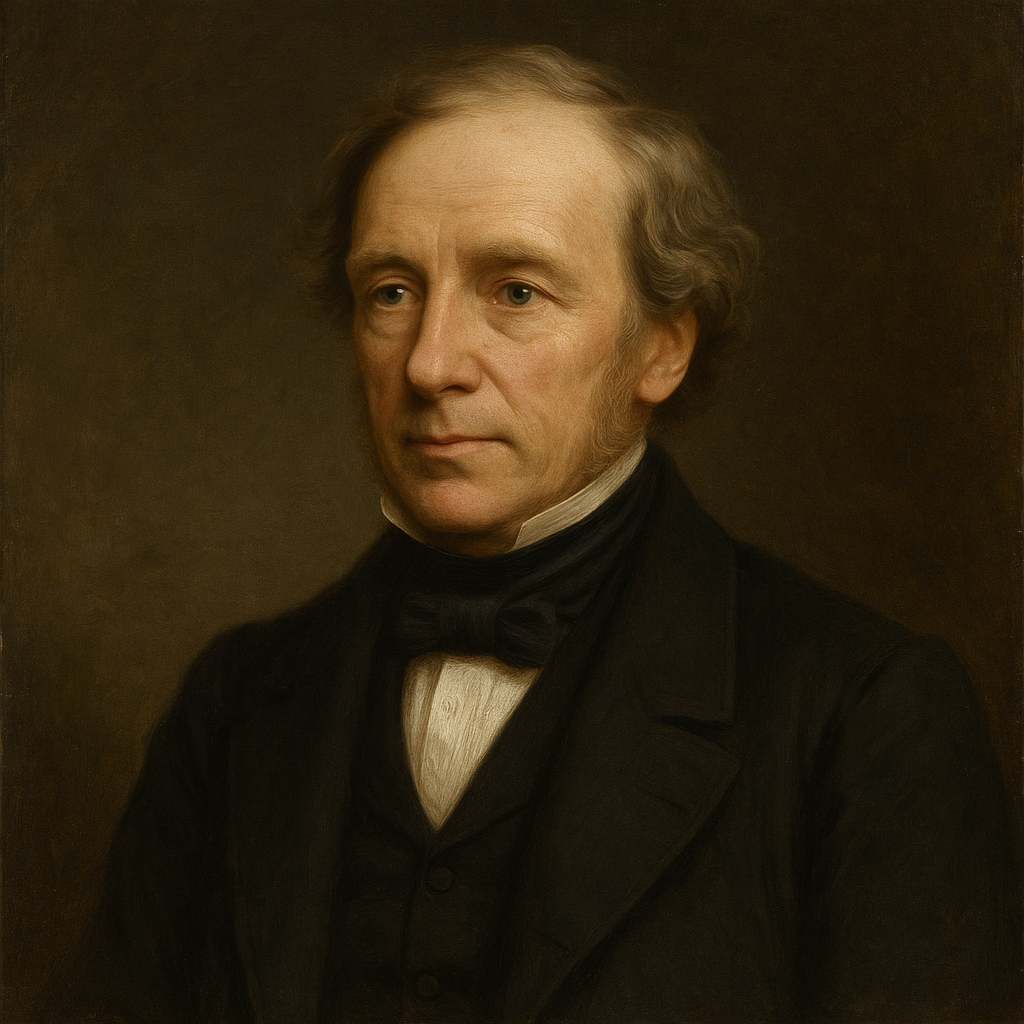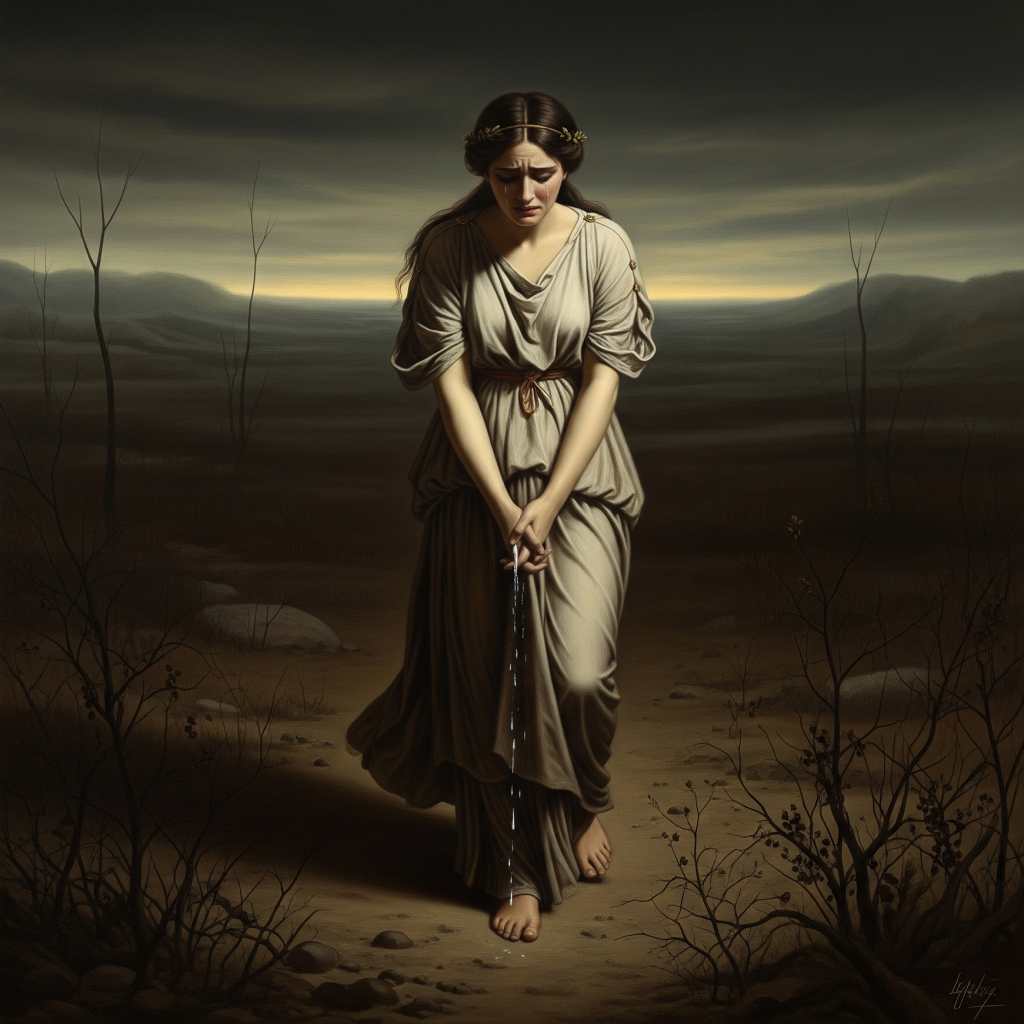6 Poems by Charles Tennyson Turner
1808 - 1879
Charles Tennyson Turner Biography
Charles Tennyson Turner, born on July 4, 1808, in Somersby, Lincolnshire, was a notable English poet of the Victorian era, whose life and work were inextricably linked to those of his more famous brother, Alfred Tennyson. The two brothers, along with their elder brother Frederick, formed a triumvirate of poetic talent that emerged from the quiet rectory of their father, George Clayton Tennyson, in the early 19th century.
Charles, christened Charles Turner, was the third son of the Reverend George Clayton Tennyson and his wife Elizabeth Fytche. He grew up in a large family of twelve children, where literature and learning were highly valued. The Tennyson household was steeped in a rich cultural atmosphere, with their father, a country clergyman, instilling in his children a deep appreciation for classical literature and encouraging their creative pursuits.
From an early age, Charles displayed a keen interest in poetry, often composing verses alongside his brothers. The three Tennyson brothers would frequently engage in friendly competition, critiquing each other's work and spurring one another to greater heights of creativity. This fraternal literary bond would prove to be a significant influence on Charles's poetic development throughout his life.
Charles received his early education at home under the tutelage of his father, before attending Louth Grammar School. In 1827, he followed in the footsteps of his elder brothers and matriculated at Trinity College, Cambridge. It was during his time at Cambridge that Charles's poetic talents began to flourish in earnest. He contributed to various university publications and formed connections with other literary-minded individuals, including Arthur Hallam, who would become a close friend of the Tennyson family and the subject of Alfred's magnum opus, "In Memoriam A.H.H."
In 1830, Charles collaborated with Alfred on their first published work, "Poems by Two Brothers" (which actually included poems by three brothers, as Frederick had also contributed). This collection, while not receiving widespread acclaim at the time, marked the beginning of Charles's public literary career and hinted at the poetic prowess that would later distinguish him.
After graduating from Cambridge in 1832, Charles took holy orders and was appointed to the curacy of Tealby, Lincolnshire. It was around this time that he adopted the surname Tennyson Turner, in order to inherit property from a great-uncle. This change of name would sometimes lead to confusion in literary circles, with some mistakenly believing that Charles and Turner were two separate individuals.
Charles's clerical career was marked by dedication and a deep sense of pastoral care. He served as vicar of Grasby, Lincolnshire, from 1835 until his death in 1879. His experiences as a country parson greatly influenced his poetry, which often reflected the rural landscapes and simple pleasures of English country life. Charles's sonnets, in particular, gained recognition for their vivid depictions of nature and their ability to find profound meaning in everyday occurrences.
In 1836, Charles married Louisa Sellwood, the younger sister of Emily Sellwood, who would later become Alfred Tennyson's wife. This marriage further cemented the already strong bond between the two brothers. Charles and Louisa's union was a happy one, though sadly childless. Louisa proved to be a supportive partner in both Charles's clerical and poetic endeavors, often assisting him in his parish duties and providing inspiration for his verses.
Throughout his life, Charles maintained a close relationship with Alfred, who would go on to become Poet Laureate and one of the most celebrated poets of the Victorian era. While Charles's own poetic output was more modest in quantity, it was nonetheless highly regarded for its quality and craftsmanship. He specialized in the sonnet form, earning the nickname "the most correct of our sonneteers" from his contemporary, the poet and critic Theodore Watts-Dunton.
Charles's first solo collection, "Sonnets and Fugitive Pieces," was published in 1830, followed by "Sonnets" in 1864, and "Small Tableaux" in 1868. His final collection, "Collected Sonnets, Old and New," was published posthumously in 1880, edited by his brother Hallam Tennyson. These works showcased Charles's mastery of the sonnet form and his ability to capture moments of beauty and insight in tightly constructed verses.
One of Charles's most admired sonnets, "The Lachrymatory," exemplifies his skill in imbuing everyday objects with deep emotional resonance. The poem, which describes an ancient Roman tear-vial, uses this artifact as a metaphor for preserved grief and memory, demonstrating Charles's ability to blend classical allusions with personal sentiment.
While Charles never achieved the same level of fame as his brother Alfred, his work was highly respected within literary circles. He was praised by contemporaries such as Matthew Arnold and Gerard Manley Hopkins for his technical proficiency and the sincerity of his poetic voice. Charles's sonnets were particularly noted for their precise observations of nature and their ability to find spiritual significance in the minutiae of rural life.
Despite his poetic achievements, Charles remained devoted to his clerical duties throughout his life. He was known as a conscientious and compassionate pastor, deeply involved in the lives of his parishioners. This dual vocation as both poet and priest informed much of his work, lending it a unique perspective that combined earthly beauty with spiritual contemplation.
Charles Tennyson Turner passed away on April 25, 1879, in Grasby, Lincolnshire, leaving behind a legacy of finely crafted poetry that continues to be appreciated by scholars and poetry enthusiasts. His life and work offer a fascinating glimpse into the literary world of Victorian England, showcasing the often-overlooked talents that existed in the shadow of more famous contemporaries.
In the years following his death, Charles's reputation has experienced a quiet resurgence, with modern critics recognizing the enduring quality of his sonnets and their importance in the development of the form in English literature. His ability to find profound meaning in the simplest of subjects, coupled with his technical mastery, ensures that Charles Tennyson Turner's contributions to poetry remain worthy of study and admiration in the contemporary literary landscape.
This text was generated by AI and is for reference only. Learn more
Username Information
No username is open
Everything is free to use, but donations are always appreciated.
Quick Links
© 2024-2025 R.I.Chalmers (V2Melody).

All music on this site by R.I.Chalmers (V2Melody) is licensed under a Creative Commons Attribution-NonCommercial 4.0 International License.
Attribution Requirement:
When using this music, you must give appropriate credit by including the following statement (or equivalent) wherever the music is used or credited:
"Music by R.I.Chalmers (V2Melody) – https://v2melody.com"
Support My Work:
If you enjoy this music and would like to support future creations, your thanks are always welcome but never required.
Thanks!







